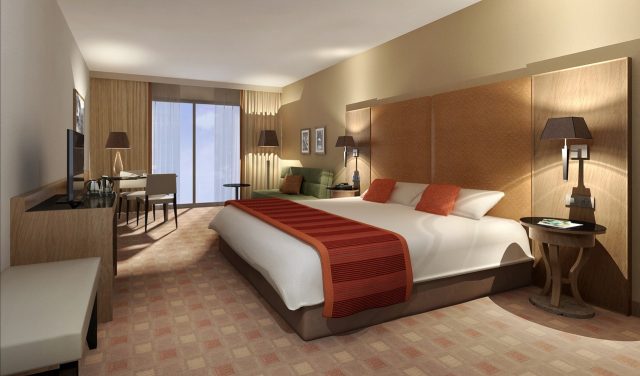By the beginning of 2020, hotels started to shift the quality of everything from cleanliness to marketing, according to industry expert Arif Efendi. As travel fanatics first heard of a mysterious pandemic spreading rapidly, it was time for the hospitality industry to take a second look at how they operate daily. Efendi shares his thoughts on the shift and dives into future predictions on how we’ll move into the 2023 summer travel season in a post-lockdown world.
Challenges, Standards, and Innovation
Two main challenges regarding the massive hospitality industry shift include staff shortages and a decrease in room sales. As travel preferences changed among audiences, some hotels required a higher ability to pay staff sufficiently and operate fully with food, events, and room capacity. To further the challenge, employees are now leaving work for alternative options, such as spending more time with family and switching to industries that weren’t as affected by the pandemic.
On a positive note, hotels have had a new cleanliness and customer service standard since the pandemic hit. Hotel workers understand the value of having a loyal customer base that stays again on a later trip based on outstanding service. In addition, many passionate employees stayed in hotels due to their desire to uplift the travel community. Because of this, a new standard of ultimate kindness, luxury, and efficiency has entered the space.
Incredible innovations have been introduced. From meal-ordering apps to automatic lights and in-room entertainment systems, the hospitality industry has nowhere to go but up. Guests also enjoy the benefits of hotels versus house stays, as hotels continue to offer the best service and amenities, including pool settings, event spaces, and passionate staff.
The Future of Hospitality in a Post-Covid Reality
The front desk has its own set of downfalls regarding pandemic-related safety measures. Although hotels have done an outstanding job reorganizing the check-in process, there is a public space that required the utmost attention: the hotel restaurant.
As eating areas became more dangerous with the viral spread, hotels had to make a change. Depending on the space, many hotels used different methods to curb viral infection risk. Various innovations included grab-and-go breakfast services and QR-code menus.
The creativity surrounding this didn’t stop. Hotels are still implementing innovative plans while maintaining luxury. For example, many companies noticed the benefits of automated systems and simplifying the process of feeding guests throughout their stay. To increase revenue in tough times, some hotels have even offered rooms for daytime stays in the name of a luxury remote work option.
Many changes have also been made in private hotel rooms. Hotels globally removed decorative pillows, unnecessary duvet covers, and extra blankets in closet spaces. They have also implemented other safety measures like providing staff with personal protective equipment (PPE) and posting notes for guests on high-risk touchpoints after cleaning. Risky touchpoints in hotel rooms include typical items like drinking glasses, refrigerators, coffee corners, and bathroom amenities such as towels or hair dryers.
Many hoteliers have established certifications to satisfy guests and ensure clean safety measures. They will continue to do so this year. Hotels now work with third parties to approve cleaning methods and increase guest and regulatory trust. The Centers for Disease Control and Prevention (CDC) has an approved group of cleaning procedures for hotels to follow. Many employees will be fully trained in these procedures for the 2023 season, so guests receive the best possible care.
Arif Efendi Shares His View
The hospitality expert himself shares his predictions on the future of hotels. He views hotels as an everlasting necessity for travelers and businesspeople alike. Hotels provide effortless stays for people who need convenience and ready-to-serve staff. Whether it’s a wedding or a business trip, hotels are a stable and reliable way to see the world or celebrate an occasion.
With new technology in hotels, such as robot-assisted room service, private spa rentals, and automated check-in options, there is proof that hotels will always find a way to make it through challenging times. Likewise, we learn from Arif Efendi that hotels will always be necessary, no matter the global situation.
Many hotels have also changed their capacity. They can now invest in initiatives like cleanliness, spa and lobby facilities, and room amenities. Some hotels have shut down wings to focus on what’s important – customer satisfaction and return.
One of the best marketing tactics and incentives for hotel operators to enact is new offerings. This can include restaurant or buffet meals on the house, complimentary stays for loyal customers, and discounts for new travelers. There are limitless ways to consider and implement successful innovations in any hotel post-Covid. Consider the points in this article to understand what hotels are doing to create the ultimate experience moving forward, despite some challenges the pandemic introduced in recent years.













